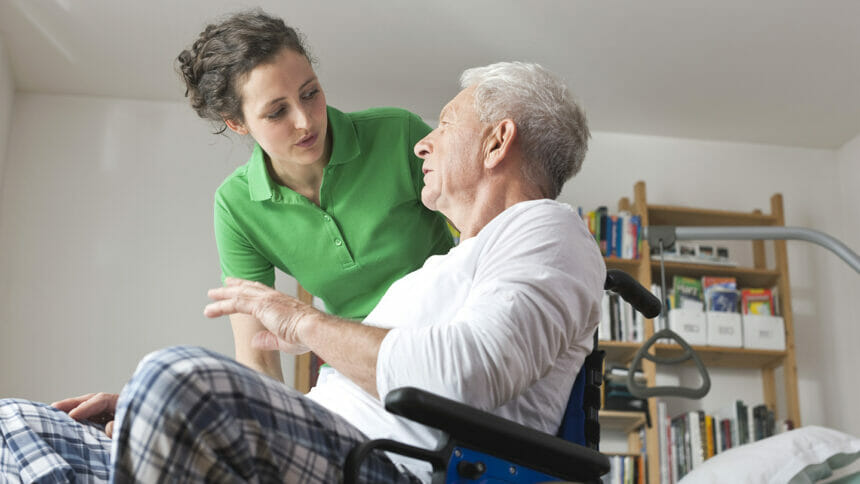
The US Department of Health and Human Services on Thursday announced a proposed rule that seeks to strengthen efforts against disability-based discrimination. The proposal singles out the importance of providing services “in the most integrated setting appropriate to the needs of individuals with disabilities.”
“It’s 2023, yet for many Americans accessing basic health needs is still challenging. Some persons with disabilities may have to drive hours to get an accessible mammogram or receive the benefit and advancements of our healthcare system,” said HHS Secretary Xavier Becerra in a statement. “This historic proposed rule will advance justice for people with disabilities and help ensure they are not subjected to discrimination under any program or activity receiving funding from HHS just because they have a disability.”
The rule builds upon Section 504 of the Rehabilitation Act of 1973, a nondiscrimination law that ensures disabled individuals’ rights to access and participation in HHS-supported health services. It clarifies requirements set by the act to ensure consistency with the Americans with Disabilities Act, the Americans with Disabilities Amendments Act, amendments to the Rehabilitation Act and significant case law, according to the statement.
Specifically, the proposed rule would mandate that treatment decisions are not made based on preconceptions of a person’s disability.
While some long-term care providers have been penalized for discriminating against residents with specific needs, such as deaf or blind patients with need for special services or interpretation, or those in wheelchairs, others have been accused of discriminating more broadly.
For example, researchers and patient advocates have accused nursing homes of denying admission to patients with chronic conditions that require long-term care, in favor of those with short-term needs whose stays would be covered by Medicare.
The new rule also would ensure web-based services and other forms of communication are usable by all people with disabilities, such as low vision or hearing, and reduce patients’ barriers to accessing medical equipment. Further, it would prohibit the use of value assessments that would limit access to health benefits or services to people with disabilities, mandate HHS-supported providers allow the use of service animals or mobility devices, and ensure that care is provided in the most appropriate setting.
The proposed rule points out bias toward institutional settings for people with disabilities. A recent study found that many people with disabilities end up in nursing homes due to inadequate services or housing that, if present, could allow them to remain outside of nursing homes.
“The COVID-19 pandemic shone a spotlight on the discrimination that too many people with disabilities continue to face, from denial of medical treatment due to ableism, to inaccessible medical equipment and websites, to having no choice but to receive services in institutional settings,” said Alison Barkoff, principal deputy administrator of the Administration for Community Living, in the statement Thursday.
The proposed rule comes as thousands of older adults and people with disabilities around the country are losing Medicaid coverage due to the redetermination process following the COVID-19 pandemic.
HHS is seeking public comment on the proposed rule.



